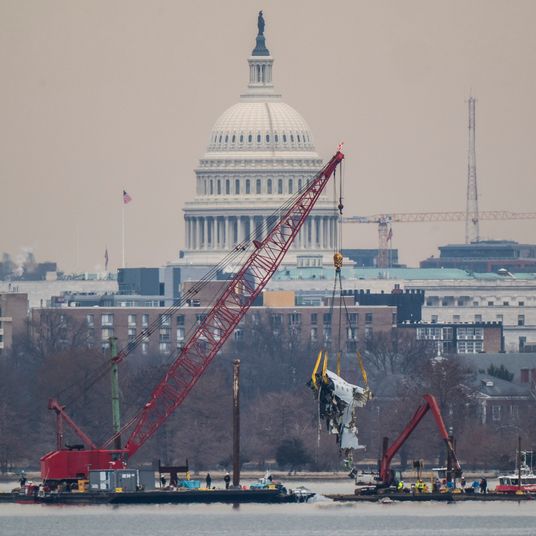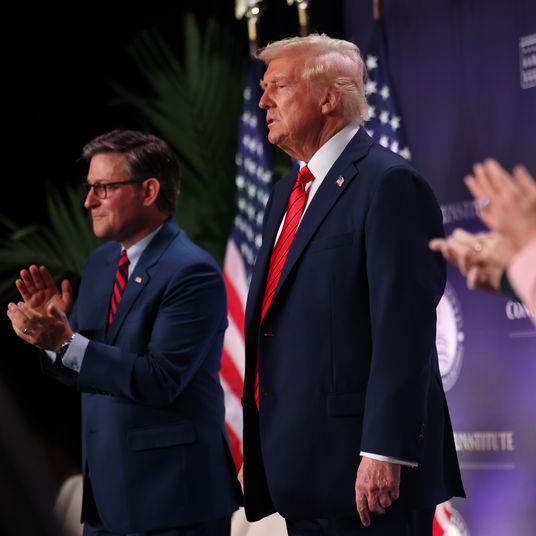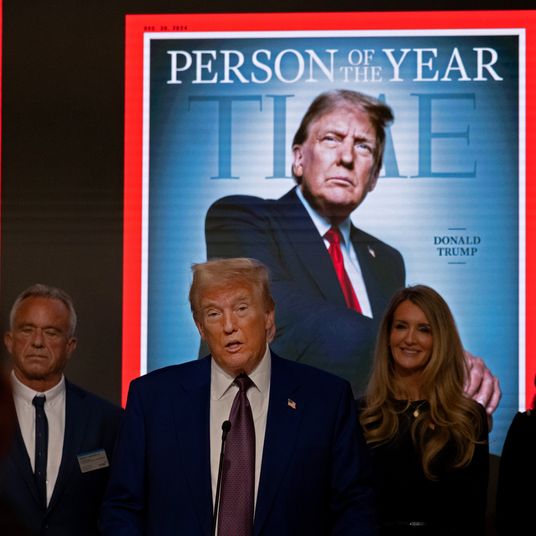
President Trump’s remarks on Wednesday following an Iranian missile strike on U.S. forces stationed in Iraq covered a lot of territory; as New York contributor Heather Hurlburt notes, in nine minutes he “offered a condensed version of every national-security trope beloved of Republicans and a good chunk of his campaign stump speech.” But for Americans who don’t wish to escalate the conflict with a capable actor willing to call it even — even if Iran’s careful retaliation was not on par with the Trump administration’s violation of international law — Trump’s decision to declare victory (“Iran appears to be standing down”) and express restraint (“The fact that we have this great military and equipment, however, does not mean we have to use it”) is a welcome relief after six days of speculation and frantic worry.
A greater breath of air may come in the Republican Party’s welcome reception of the poststrike remarks, considering that the president is notoriously amenable to influence, especially to any perception of softness. “A home-run speech by President Trump about the challenges we face with Iran,” said Lindsey Graham. “It was measured and firm.” It’s quite the reversal of tone from his appearance on Hannity on Tuesday night, when the Iran hawk called the strike an “act of war” and said that Trump needs to “restore deterrence.” Wyoming Representative Liz Cheney, who wanted “retaliation” Tuesday night, offered a more sober assessment on Wednesday morning: “There are a multitude of options that we have,” and pointed to the lack of American casualties. “I’m hoping we kind of let it rest where it is,” said Indiana Senator Mike Braun. “I think the point has been made, and I think there’s a new paradigm now in the Mideast.” As Politico notes, “So far, no Republicans have called on Trump to respond with new military operations against Iran.”
In the immediate wake of Iran’s retaliation — which U.S. officials reportedly knew about hours in advance — the two countries appear to be traveling along a pacifist’s best-case scenario: Tehran took the opportunity to launch face-saving, casualty-minimizing strikes, which the Trump administration interpreted as a sign of concession. But even if the threat of further violence retreats, Trump’s initial decision to kill Iranian general Qasem Soleimani won’t disappear from American politics. As it becomes clear that the president’s rationale for killing Soleimani makes no sense, Democrats are pushing back on the intelligence Trump used to justify the attack, and the claim that the Quds Force leader was planning an “imminent” attack on Americans abroad.
“Sophomoric and utterly unconvincing,” Democrat Gerald E. Connolly told reporters as he left a closed-door briefing of the House Foreign Affairs and Oversight committees, adding that the administration made “no case” that Soleimani was an imminent threat. Senate Democrats also appeared to gain a key ally in their effort to pass a War Powers Resolution. On Wednesday, Utah Republican Mike Lee said that the intelligence briefing on Iran was “probably the worst briefing, at least on a military issue, I’ve seen,” and called the administration’s instruction to senators not to debate the validity of the strike “insulting.”






























